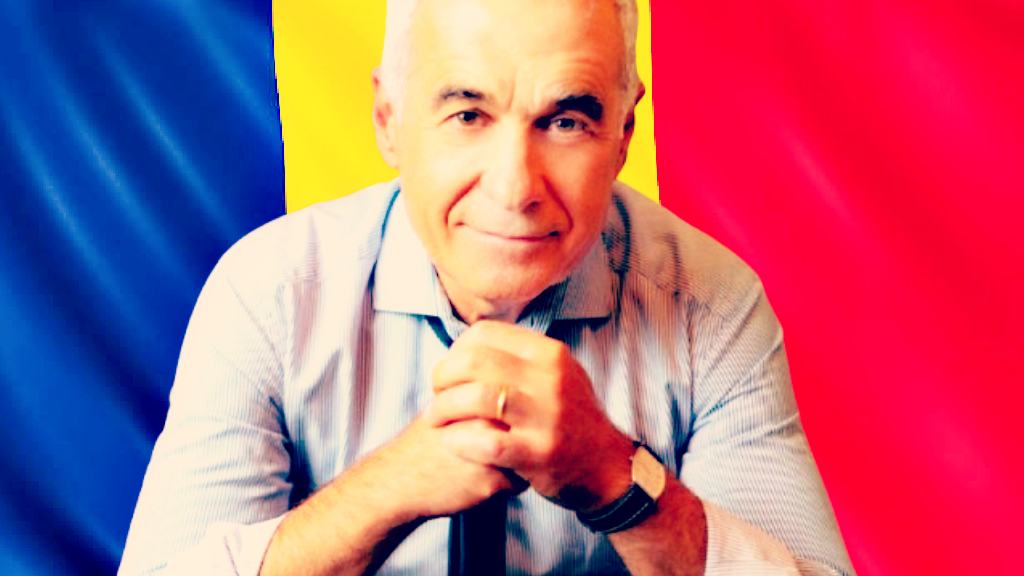The recent presidential elections in Romania have stirred significant controversy, particularly due to the unexpected rise of Călin Georgescu, an independent candidate and vocal critic of globalism. Georgescu’s victory in the first round, where he secured a substantial lead over traditional political figures, defied widespread predictions that favored Prime Minister Marcel Ciolacu—an ardent supporter of European integration and a leftist agenda. His election campaign, which heavily utilized social media platforms like TikTok, garnered him support largely due to his Euroskeptic stance and his condemnation of the United Nations, which he infamously labeled as “satanic.” His rhetoric resonated with a populace increasingly disillusioned with established political parties and their perceived detachment from national interests, marking a significant shift in Romanian politics.
However, the excitement surrounding Georgescu’s apparent victory was short-lived. Just days before the run-off election, the Romanian Constitutional Court made a controversial decision to annul the first round of voting. The court cited allegations of Russian interference via social media as a basis for its ruling, triggering accusations of political manipulation akin to tactics seen in other nations. The response from Western allies, particularly the Biden administration, echoed these allegations, seemingly supporting the court’s decision without substantial evidence. This annulment raises questions about the integrity of electoral processes in Romania and reflects a broader trend of globalist influence that seeks to maintain control over democratic outcomes in Eastern Europe.
Georgescu has since intensified his criticism of the Romanian globalist establishment and vowed to continue advocating for national sovereignty. The political stakes have escalated; his opponents view his platform as a significant threat to their alignment with NATO and the ongoing military support for Ukraine amidst its conflict with Russia. As highlighted by Mike Benz in a recent discussion, the potential policy shifts implied by a Georgescu presidency could disrupt a vital weapons supply chain that runs through Romania into Ukraine, which currently relies heavily on military support from Western powers. With Romania functioning as a critical hub for arms transshipment from Pakistan into Ukraine, a pivot toward neutrality concerning Russia could significantly hamper NATO’s operational capabilities and strategy in the region.
Benz’s assertions laid bare the underlying motives driving the abrupt electoral cancellation, suggesting that it mirrors an earlier U.S. political episode in 2016 when attempts were made to contest electoral outcomes based on claims of foreign interference. The chilling parallel drawn between these events raises critical questions about the nature of alleged foreign influence in domestic politics and the extent to which the political elite are willing to go to uphold their geopolitical aims. As in the U.S. case, the efforts to annul election results in Romania suggest a willingness to manipulate legal frameworks in order to suppress dissenting voices within the electorate. This scenario points toward a broader trend whereby elite entities might seek to undermine democratic processes when faced with potential challenges to the status quo.
The implications of such developments extend beyond Romania’s borders into the larger geopolitical landscape, where the calculus of conflict and alliance is ever-changing. The importance of Romanian elections is not confined to national priorities but intertwines with broader issues of regional security, military strategy, and the global power structure. As Romania’s political dynamics shift, they have the potential to disrupt established narratives and alliances, particularly concerning NATO’s strategy in Eastern Europe. Should Georgescu assume office, there is a fear among Western leaders that Romania could become a destabilizing factor within NATO, potentially realigning the balance of power as the West continues to navigate a complex and often tumultuous relationship with Russia.
In summary, the unfolding situation in Romania is emblematic of a wider struggle between globalist interests and nationalist sentiments. Călin Georgescu represents a burgeoning movement that is challenging existing norms, rejecting foreign interference, and advocating for a return to sovereignty. However, the reaction from the Romanian judiciary and Western political leaders raises critical questions about the health of democratic institutions and the lengths to which those in power will go to protect their interests. As global dynamics continue to evolve, the outcomes of such elections will likely play a crucial role in shaping the future of not only Romania but the entire region, with repercussions that may echo far beyond its borders.

